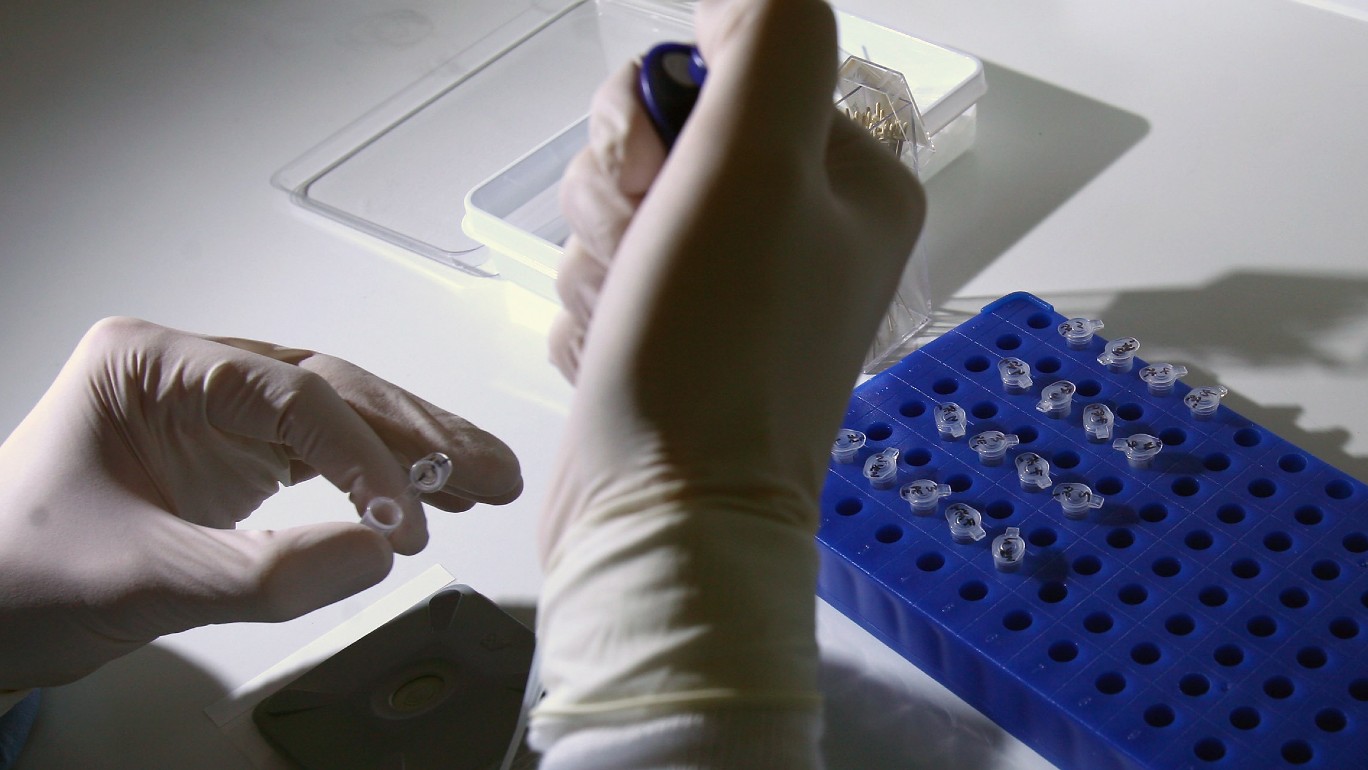The Covid pill: new antiviral taskforce faces tough challenge
Boris Johnson’s government launches bid to find medication to treat coronavirus at home

A free daily email with the biggest news stories of the day – and the best features from TheWeek.com
You are now subscribed
Your newsletter sign-up was successful
A new taskforce is to lead the UK’s search for a home antiviral treatment such as a pill or capsule that can help prevent Covid-19 patients from becoming seriously ill.
Announcing the plan at a Downing Street press briefing yesterday, Boris Johnson said he hoped a “Covid pill” would be available by the autumn to help combat any third wave of the virus.
But, as The Times says, developing antiviral treatments has so far “proved difficult”.
The Week
Escape your echo chamber. Get the facts behind the news, plus analysis from multiple perspectives.

Sign up for The Week's Free Newsletters
From our morning news briefing to a weekly Good News Newsletter, get the best of The Week delivered directly to your inbox.
From our morning news briefing to a weekly Good News Newsletter, get the best of The Week delivered directly to your inbox.
‘A lot of work’
Nat Moorman, a virologist at the University of North Carolina at Chapel Hill, told Nature last week that “a lot of work” needs to be done to find an antiviral treatment for the coronavirus. The journal reports that despite previous outbreaks of Sars and Mers, there have been “practically no strong antiviral drug candidates to quickly test and deploy against Sars-CoV-2”, the virus that causes Covid-19.
The candidates that have been considered include remdesivir, originally developed to treat hepatitis C and Ebola. But Nature says that “some clinical studies have failed to confirm that it offers [Covid] patients any benefit. And the drug is expensive, difficult to manufacture and must be given intravenously in a hospital - all undesirable attributes in the middle of a pandemic.”
Experts are hoping that some of those issues might be avoided with another antiviral drug, molnupiravir, which is undergoing early-stage testing in hamsters by the US National Institutes of Health (NIH) and late-stage human trials by biotech company Ridgeback Biotherapeutics and pharmaceutical Merck. Meanwhile, the NHS is testing an antiviral called favipiravir in trials involving UK patients.
A free daily email with the biggest news stories of the day – and the best features from TheWeek.com
Targeting the problem
Developing antiviral treatments is hard is “because viruses offer far fewer targets than bacteria to attack”, says The Times.
While bacteria are whole living cells, “viral pathogens live inside our own cells and depend on our proteins for most of their needs”, explains Scientific American. There are also few natural antivirals, “so scientists have to invent them from scratch”, the science magazine continues.
The challenge for antiviral designers is “to stop the virus without damaging the inner workings of healthy cells too”.
The good news
Johnson said yesterday that he hopes that at least two effective treatments will be developed to provide “another vital defence against any future increase in infections”. The aim is to have an antiviral pill or capsule that can be taken at home by people who have tested positive for Covid or has been exposed to the virus.
Patrick Vallance, the government's chief scientific adviser, pointed to the speed at which the vaccines and other treatments such as the steroid dexamethasone were found and rolled out. “The taskforce will help ensure the most promising antivirals are available for deployment as quickly as possible,” he said.
-
 Why are election experts taking Trump’s midterm threats seriously?
Why are election experts taking Trump’s midterm threats seriously?IN THE SPOTLIGHT As the president muses about polling place deployments and a centralized electoral system aimed at one-party control, lawmakers are taking this administration at its word
-
 ‘Restaurateurs have become millionaires’
‘Restaurateurs have become millionaires’Instant Opinion Opinion, comment and editorials of the day
-
 Earth is rapidly approaching a ‘hothouse’ trajectory of warming
Earth is rapidly approaching a ‘hothouse’ trajectory of warmingThe explainer It may become impossible to fix
-
 A Nipah virus outbreak in India has brought back Covid-era surveillance
A Nipah virus outbreak in India has brought back Covid-era surveillanceUnder the radar The disease can spread through animals and humans
-
 Covid-19 mRNA vaccines could help fight cancer
Covid-19 mRNA vaccines could help fight cancerUnder the radar They boost the immune system
-
 The new Stratus Covid strain – and why it’s on the rise
The new Stratus Covid strain – and why it’s on the riseThe Explainer ‘No evidence’ new variant is more dangerous or that vaccines won’t work against it, say UK health experts
-
 RFK Jr. vaccine panel advises restricting MMRV shot
RFK Jr. vaccine panel advises restricting MMRV shotSpeed Read The committee voted to restrict access to a childhood vaccine against chickenpox
-
 RFK Jr. scraps Covid shots for pregnant women, kids
RFK Jr. scraps Covid shots for pregnant women, kidsSpeed Read The Health Secretary announced a policy change without informing CDC officials
-
 New FDA chiefs limit Covid-19 shots to elderly, sick
New FDA chiefs limit Covid-19 shots to elderly, sickspeed read The FDA set stricter approval standards for booster shots
-
 RFK Jr.: A new plan for sabotaging vaccines
RFK Jr.: A new plan for sabotaging vaccinesFeature The Health Secretary announced changes to vaccine testing and asks Americans to 'do your own research'
-
 Five years on: How Covid changed everything
Five years on: How Covid changed everythingFeature We seem to have collectively forgotten Covid’s horrors, but they have completely reshaped politics